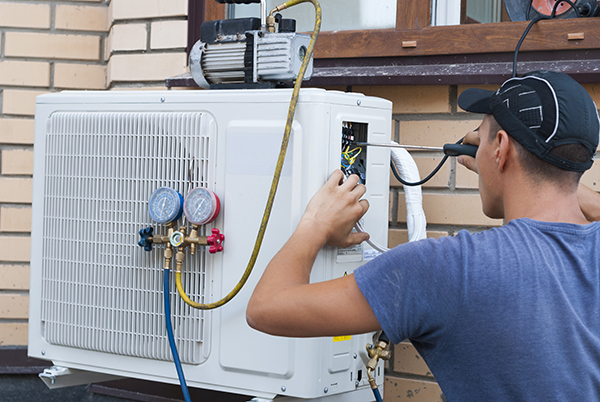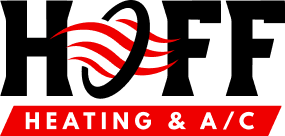8 Signs Your Mini Split Needs Maintenance

Mini-splits are heating and cooling units that do not require air vents or ducts to circulate heated or conditioned air in your home. These systems are becoming increasingly popular among many homeowners due to their ease of installation, energy efficiency, and cost-effectiveness. However, like any other home appliance, mini-splits need routine maintenance to keep them in good condition and maintain optimum performance. Neglecting mini-split maintenance can result in higher energy bills, decreased performance, and even premature system breakdown.
Experts recommend getting your mini-split checked and maintained annually by an HVAC expert. The good news is that ductless mini-splits are not maintenance-intensive. Regular upkeep and yearly maintenance can help keep your mini-split in good shape and extend its service life. Below are eight tell-tale signs your home’s mini-split needs maintenance.
1. Short-Cycling
Short cycling is when your mini-split unit shuts down before a cooling or heating cycle is finished. As a result, your ductless unit will keep turning off and on frequently, making your home less comfortable. Common culprits behind mini-split short-cycling include low refrigerant levels and electrical faults. This problem may also occur due to a malfunctioning thermostat or dirty air filters. Additionally, if you have recently installed a mini-split, regular short cycling may mean your unit is too big for the space you are heating or cooling.
Short cycling affects your mini-split performance and can drastically increase your home’s energy expenses. It can also lead to increased tear and wear on the unit from shutting down and starting up frequently, which can cause premature breakdown. Regular maintenance can prevent your mini-split system from short-cycling and even extend the unit’s lifespan.
2. Moisture or Leaks
Mini-splits use refrigerant to distribute conditioned air, which can cause condensation. Nonetheless, the moisture or water should not collect in the unit and leak into your living space. Leaking water below or around your air conditioner means the unit is malfunctioning. The AC condensate drain line might be broken or blocked, causing water to back into the unit.
Apart from water, the air conditioner’s refrigerant might also leak from your unit. Refrigerant leakage is a serious problem that can cause health complications and damage your environment. If you have moisture buildups with odd colors or pools of water under your air conditioner, turn off your mini-split and call your HVAC expert to inspect the unit.
3. Reduced Airflow
The other sign your mini-split system requires professional maintenance is poor airflow. A dirty or clogged air filter is the most common culprit of poor airflow. If your mini-split system’s filter is clogged with grime, dirt, debris, or dust, airflow through the unit will be restricted. As a result, the mini-split will struggle to pull air in and overwork to reach your preferred indoor temperatures. Overworking your mini-split can increase energy costs and premature tear and wear on the system. If you are experiencing a decrease in airflow, experts recommend washing or changing your filters more often to prevent poor performance. Check the user’s manual and follow the manufacturer’s recommendations on filter usage.
4. Unusual Sounds
Generally, a ductless mini-split system should run without producing any loud noises. If you notice unusual sounds coming from your mini-split unit, it might indicate a problem. Strange noises can occur due to faults with your mini-split system’s internal components.
Grinding sounds indicate that your ductless unit may need a professional’s intervention so they can lubricate its internal parts. If not addressed in time, continuous rattling and grinding noises can increase the wear of the metal components and motor bearings.
Clicking sounds in the mini-split outdoor unit can indicate an obstruction in the unit’s fan, which it hits as it runs. If your mini-split does not turn on, the clicking noise may signify an electrical problem in the unit’s components. Clanging noises indicate the outdoor unit’s fan might be loose or striking the protective cage. Your technician can check the outdoor unit for loose mounting or obstructions.
If you notice a bubbling or a gurgling noise from your ductless system, you might be dealing with a refrigerant or condensate drain leak. Other unusual noises to watch out for include hissing, buzzing, and squealing. Ignoring strange noises can cause more damage to your unit and even lead to system failure. Therefore, you should call your HVAC technician for repairs and maintenance if you notice unusual sounds from your ductless system.
5. Foul Smells
If you begin to smell something unpleasant from your ductless system, the culprits might be somewhere within the unit. If moisture accumulates in your unit, it can create favorable conditions for mildew and mold to grow, causing a musty odor to permeate your indoor air. A burning smell can signify an electrical wiring issue.
If you notice foul odors in your indoor space, call your HVAC technician to identify the source of the smells and take the appropriate action. During maintenance visits, your technician will inspect the unit, replace the filter, and clean the coils to prevent foul odors.
6. Inconsistent Indoor Temperatures
If you have multiple indoor air handlers and some parts of your house are not getting heated or cooled evenly, it might be a sign of an issue with your system. A malfunctioning thermostat, a dirty filter, and a wrongly calibrated thermostat are the main causes of inconsistent temperatures. It’s crucial to have your ductless system regularly inspected and maintained by a licensed HVAC technician to ensure even heating or cooling in all areas of your home.
7. Ice Buildups
The other sign that your mini-split system needs maintenance is ice buildups on the coils. Check if the coils have ice formations if your ductless system is blowing out air but not heating your space. The coils can freeze for several reasons, including lack of airflow, low refrigerant, and broken blower fan. When the unit’s coils freeze, they cannot effectively draw heat or cold from the surrounding air, so your system will not work properly.
If you notice ice buildups on your mini-split, contact your technician to identify the underlying cause of the problem and fix it. Sometimes the solution may include the following:
- Replacing or cleaning air filters
- Cleaning the condensate drain line
- Checking refrigerant levels
- Addressing any thermostat problems
- Checking the fan
8. High Energy Bills
The other sign of a mini-split that needs maintenance is increasing energy bills. If you notice a drastic increase in your monthly energy bills, it might be a sign that your ductless mini-split system is not working properly. A unit that needs attention will overwork to keep your space comfortable. As a result, it will use more energy, leading to higher monthly bills.
Regular inspection and maintenance can help improve your mini-split performance and minimize energy consumption. Additionally, investing in a programmable or smart thermostat can help you control your energy usage more precisely, potentially saving you money on energy bills.
Partner With the Cooling and Heating Experts!
At Hoff Heating & AC, we have been serving the residents O’Fallon, MO since 1983. We install, maintain and repair all heating and cooling systems, including ductless mini splits and geothermal systems. In addition, we provide indoor air quality and new construction services.
Maintaining your ductless system is vital to ensuring its efficiency and longevity. If your mini-split system shows any of the above signs, contact our HVAC experts at Hoff Heating & AC for a professional inspection, tune-up, or repair.

 Call Us Today
Call Us Today
